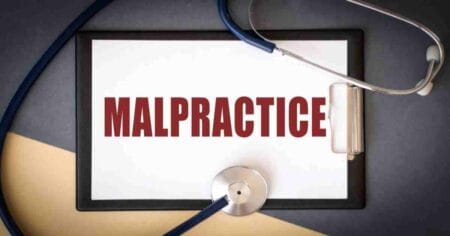
Introduction on How to Prove Birth Injury Malpractice Cases
Birth injury malpractice cases have become critical in just 15 to 20 minutes during placental abruption. Brain damage can become permanent in this short window, which makes understanding these cases significant for families affected by such trauma.
Medical negligence can cause devastating birth injuries like hypoxic-ischemic encephalopathy (HIE), cerebral palsy, and brachial plexus injuries. The process to prove medical malpractice needs four key elements: duty of care, breach of that duty, causation, and damages. Strong evidence makes your case work better – this includes detailed medical records, expert witness testimony, and eyewitness accounts.
Parents dealing with birth injury medical negligence often feel overwhelmed. The good news is that states like Ohio and Kentucky give you time until your child’s 19th birthday to file a claim. This extended period gives families a chance to understand their child’s injuries completely and create a solid case.
This piece guides you through each step to prove birth injury malpractice. You will learn about gathering significant evidence and finding a Nashville Birth Injury Lawyer who can support your family’s rights and future.
Understanding Birth Injuries and Medical Negligence
A successful birth injury malpractice case starts by knowing the difference between preventable injuries and natural complications. This difference creates the foundation for any medical negligence claim and helps determine if legal action makes sense.
Birth injuries vs. birth defects
Birth injuries are different from birth defects in several key ways. Birth injuries happen during labor and delivery, while birth defects develop as the baby grows in the womb, usually in the first trimester. CDC research shows birth defects affect about 1 in 33 babies born each year in the United States, which means roughly 3% of all births.
Birth injuries usually come from mechanical forces like pressure, traction, or compression during childbirth. Birth defects, on the other hand, come from genetic factors, environmental exposures, or the mother’s health conditions.
The biggest difference lies in what doctors can prevent. While genetic factors cause many birth defects that nobody can avoid, proper medical care and quick action can prevent most birth injuries. The outlook is different too—many birth injuries can get better with treatment, but birth defects often need lifelong care.

When does a birth injury become malpractice?
Medical malpractice happens when healthcare providers harm patients by being negligent or failing to provide proper care. For birth injuries, malpractice occurs when a medical professional’s negligence during pregnancy, labor, or delivery harms the mother or baby.
The medical standard of care means providing the same level of skill and care that other qualified medical providers would give in similar situations. Healthcare providers who don’t meet this standard fail their duty of care.
Not every birth complication counts as malpractice. The provider’s negligence must directly cause an injury that proper care could have prevented. Legal experts call this “but-for” causation.
Common types of birth injury medical negligence
Birth injury negligence can happen before, during, or right after delivery. The damage ranges from temporary injuries to permanent disabilities or death.
Here are the most common ways birth injury negligence happens:
- Failure to monitor and respond to signs of fetal distress, maternal infections, or complications that might cut off oxygen
- Improper use of delivery tools like forceps or vacuum extractors that can cause skull fractures, brain damage, or nerve injuries
- Delayed emergency C-sections in critical situations like placental abruption, fetal distress, or prolonged labor
- Medication errors during pregnancy or delivery that harm the mother or baby
- Excessive force during delivery, especially with shoulder dystocia, which can lead to brachial plexus injuries or Erb’s palsy
This negligence can cause severe conditions like cerebral palsy, which affects about 1 in 345 children in the United States. A child’s medical care with cerebral palsy costs $22,383 per year on average, compared to $1,358 for children without it.
Hypoxic-ischemic encephalopathy (HIE) needs special attention. This brain damage happens when babies don’t get enough oxygen during birth. HIE often leads to cerebral palsy and usually happens because medical staff miss signs of fetal distress or wait too long to act.
The Four Legal Elements You Must Prove
Birth injury malpractice cases need four legal elements to prove fault. These elements are the foundations of any successful medical negligence claim. Let’s get into each element to help you understand what it takes to hold healthcare providers accountable.
1. Duty of care
Birth injury malpractice cases start by establishing a legal duty between the healthcare provider and patient. A doctor-patient relationship automatically creates this duty. The moment medical professionals agree to treat a pregnant woman or her baby, they take on a legal obligation to provide competent care.
This professional responsibility applies to all healthcare providers involved in pregnancy, labor, and delivery—including obstetricians, nurses, midwives, anesthesiologists, and the hospital itself. These professionals must deliver treatment that meets accepted medical standards in their field and geographic region.
2. Breach of duty
Once you establish a duty existed, you need to show that the healthcare provider failed to meet the applicable standard of care—known as “breach of duty.” This happens when the provider’s actions (or inactions) fall below what a reasonably competent medical professional would do in similar circumstances.
Here are some examples of breach of duty in birth injury cases:
- Poor response to signs of fetal distress
- Misuse of delivery tools like forceps or vacuum extractors
- Delays in performing a needed cesarean section
- Medication errors during labor or delivery
- Poor monitoring of maternal or fetal vital signs
Qualified medical professionals must testify to explain how the care provided strayed from accepted standards.

3. Causation
Causation links the healthcare provider’s negligence directly to the birth injury. This vital connection has two parts: actual cause and proximate cause.
Actual cause shows that the injury wouldn’t have happened without the provider’s negligence. Proximate cause proves the injury was a foreseeable result of the negligent actions.
Birth injury cases often face their toughest challenge with causation. Defense attorneys usually argue that unavoidable factors caused the child’s condition rather than medical negligence. Expert witnesses play a crucial role by explaining how the provider’s actions led to the harm.
4. Damages
The final step proves that the birth injury caused actual harm—physical, emotional, or financial losses that deserve compensation. This covers both economic damages (measurable costs) and non-economic damages (personal losses).
Economic damages can include:
- Past and future medical expenses
- Rehabilitation costs
- Home modifications
- Special education needs
- Lost future earning capacity
Non-economic damages usually cover:
- Physical pain and suffering
- Emotional distress
- Loss of enjoyment of life
- Loss of consortium (relationship)
Medical records, diagnostic reports, and expert testimony about long-term outlook help establish these damages. Note that some states limit non-economic damages in medical malpractice cases, which can affect compensation.
A Nashville Birth Injury Lawyer’s experience substantially improves your chances of proving all four elements. These specialized attorneys know the complexities of medical evidence and can build a strong case for your family.
Gathering the Right Evidence to Support Your Case
Your birth injury case’s strength depends on the quality of evidence you gather. Strong documentation turns allegations into applicable claims and increases your chances of getting fair compensation by a lot.
Medical records and diagnostic reports
Medical records are the foundation of any birth injury malpractice case. The priority lies in collecting detailed documentation that covers prenatal care, labor, delivery, and postnatal periods. These records create a timeline that shows when and how medical errors happened.
Critical documents include:
- Mother’s medical records showing prenatal care history
- Child’s medical records detailing birth injuries and ongoing needs
- Imaging studies revealing physical damage
- Electronic fetal monitoring strips that track heart rate during labor
Fetal monitoring strips need special attention because they capture signs of distress that might indicate oxygen deprivation. Audit trails can show when staff called providers during emergencies and their response time. Complete medical documentation lets healthcare experts rebuild the sequence of events and pinpoint where care standards weren’t met.
Expert witness testimony
Expert witnesses play an essential role in proving medical negligence for birth injury cases. These specialists help judges and juries understand complex medical concepts by translating technical information into clear terms.
The case needs testimony from:
- Obstetricians who can address delivery standards
- Neonatologists who understand newborn care
- Life-care planners who calculate future medical needs
- Economic experts who assess financial effects
Expert witnesses review medical records, explain errors, and prove causation—showing exactly how the provider’s actions caused injury. Their credibility often determines the case outcome, making their selection vital for any Nashville Birth Injury Lawyer building a strong claim.
Eyewitness accounts and hospital policies
Firsthand accounts from delivery room participants add vital context beyond medical records. Statements from nurses, anesthesiologists, and family members present during birth can confirm timeline details and reveal negligent actions not documented elsewhere.
Hospital policies also play a vital role in setting care standards. Providers who violate their institution’s guidelines create strong evidence of negligence. Getting these policies through discovery helps show what should have happened versus what actually took place.
Employment and disciplinary records of providers
Provider’s employment history and disciplinary records might reveal patterns of negligence that build your case. Previous complaints, sanctions, or disciplinary actions can show recurring problems with competence or judgment.
These records help prove whether staff received proper training and supervision. License information and disciplinary proceedings from medical boards might uncover prior similar incidents, potentially showing the hospital’s awareness of problems they didn’t address well.

Frequently Asked Questions
Q1. What are the key elements required to prove a birth injury malpractice case? To prove a birth injury malpractice case, you must establish four essential elements: duty of care, breach of duty, causation, and damages. These elements demonstrate that a healthcare provider had a responsibility to the patient, failed to meet the standard of care, directly caused the injury, and that the injury resulted in measurable harm.
Q2. How long do I have to file a birth injury malpractice claim? The time limit for filing a birth injury malpractice claim varies by state. Many states extend the statute of limitations for minors, allowing claims to be filed until the child reaches adulthood. However, it’s crucial to consult with a specialized attorney promptly to ensure you don’t miss any important deadlines. In Tennessee, you have only one year from the date of the injury to file suit.
Q3. What types of compensation can be claimed in a birth injury case? Compensation in birth injury cases typically falls into two categories: economic and non-economic damages. Economic damages cover tangible costs like medical expenses, rehabilitation, and lost earning capacity. Non-economic damages address subjective losses such as pain and suffering, emotional distress, and loss of enjoyment of life.
Q4. Why is expert testimony important in birth injury malpractice cases? Expert testimony is crucial in birth injury cases because it helps explain complex medical concepts to judges and juries. Medical experts can analyze records, identify deviations from the standard of care, and establish how the healthcare provider’s negligence directly caused the injury. Their testimony often plays a decisive role in the outcome of the case.
Q5. How can a specialized birth injury lawyer help with my case? A specialized birth injury lawyer can manage all aspects of your case, from investigation to resolution. They have the expertise to interpret complex medical evidence, access to qualified medical experts, and understanding of jurisdiction-specific laws. They handle communications with insurers and defense attorneys, allowing you to focus on your child’s care while they work to secure the compensation your family needs.
Support for Parents Affected by Child Birth
Support Groups:
- Birth Injury Guide
- Birth Trauma Support
- Birth & Trauma Support Group
- Peer Support Groups – PTSD: National Center for PTSD – VA.gov
National Organizations:
- Disability Rights Advocates
- Easterseals Nonprofit Organization | Easter Seals
- Project Hope
- National Healthy Start Association: Helping Babies, Parents …
- Nemours Children’s Health System
- National Association of Parents with Children in Special Education
- Federation for Children with Special Needs
Birth Injury Centers:
- Birth Injury Center
- Pregnancy, Birth and Baby
- The Birth Trauma Association
- https://www.facebook.com/childbirthinjuries/
Additional Online Support Groups:
- Birth Injury Justice Center
- Birth & Trauma Support Group
- Birth Injury Center
- DailyStrength
- Birth Trauma Association: parent support group
- NICU Parent Resources | Support After Traumatic Birth
- Birth Defect Research for Children
- Services Birth Trauma
- CPTSD Peer Support Chat Group
- Birth Injury Center Youtube Channel
- Resources for Mothers
Spinal Cord Support Groups:
- Spinal Cord Injury Support Group
- Spinal Cord Injury Support Groups
- Vanderbilt Physical Medicine and Rehabilitation
- Support Groups – MSCIA
- Spinal Cord Injury Associations & Organizations (USA)
- Spinal Cord Injury Discussion and Support Group
- Support Groups at the Center for Spinal Cord Injury
- Better Together: Spinal Cord Injury Support Groups
- https://www.youtube.com/c/BirthInjuryCenter
Trauma Support Groups::
- March of Dimes
- Birth Trauma Support
- BPI & Erb’s Only Support Group.
- BIRTH TRAUMA RESOURCES
- Birth & Trauma Support Group
- https://www.facebook.com/groups/TheBTA/
- Trauma and PTSD Support Groups in Nashville, TN
- Support Groups – TSN 2025
- Trauma Process Group
- Birth Injury – Birth Trauma
- Postpartum Support groups
- Birth Trauma – PANDAS Foundation UK
Cerebral Palsy Support Groups:
- Cerebral Palsy Guidance
- United Cerebral Palsy (UCP)
- Cerebral Palsy Support Group
- Cerebral Palsy Family Network
- Birth Injury Support Groups: Finding Your Tribe
- The Mayo Clinic
Erb’s Palsy Support Groups:
- treatments for Erb’s palsy
- Erb’s Palsy Group
- Brachial Plexus Nerve Injury and Erbs Palsy Support Group: UBPN
- Erb’s Palsy Group CIO (@erbspalsyuk)
Brachial plexus Support Groups:
- United Brachial Plexus Network (UBPN)
- Brachial Plexus Nerve Injury and Erbs Palsy Support Group: UBPN
- BPI & Erb’s Only Support Group.
- Support Group For Erb’s Palsy (@erbspalsyfriends)
- United Brachial Plexus Network
Brain Injury Support Groups:
- Brain Injury Support Group
- Office of Acquired Brain Injury (OABI)
- Comprehensive Rehabilitation Services (CRS) Program
- Brain Injury Association of America
- Traumatic Brain Injury Support Groups
- brainline.org
- Brain Injury Association of Tennessee
- braininjuryhope.org
- Traumatic Brain Injury Services
Preeclampsia Groups:
- Preeclampsia Foundation
- HELLP Pre-Eclampsia Survivor Group
- Support during and after pre-eclampsia
- Preeclampsia, Eclampsia & HELLP Syndrome Survivors …
- March of Dimes
- Preeclampsia Foundation Community Connection
- About AAPEC
Infant Intrauterine Growth Restriction Support Groups:

Conclusion
Birth injury malpractice cases are without doubt some of the most complex and emotionally challenging legal battles families can face. This piece outlines the vital components needed to build a compelling case, from establishing the four main legal elements to gathering complete evidence. The difference between unavoidable birth defects and preventable birth injuries are the foundations of any successful claim.
Time matters by a lot when families seek justice. Most states offer extended filing periods for minors, but quick action strengthens your position and helps preserve significant evidence. Your jurisdiction’s specific compensation rules and damage caps will help you set realistic expectations right from the start.
Medical experts provide the most powerful tool in these cases. They can translate complex medical errors into clear negligence that judges and juries understand. A specialized birth injury attorney who works with qualified experts will give you the best chance of success.
The road ahead after a birth injury can feel overwhelming. With the right legal help and proper preparation, your family can secure resources needed for your child’s long-term care. Note that you don’t have to walk this challenging path alone—specialized attorneys work specifically to help families like yours while you focus on what truly matters: your child’s wellbeing.
Call Nashville Birth Injury Lawyer Timothy L. Miles Today
Navigating the aftermath of a birth injury is a challenging journey for any family. The complexities of medical malpractice law, combined with the emotional and financial strains of caring for an injured child, underscore the importance of skilled legal representation. A birth injury lawyer such as Timothy L. Miles serves as a crucial advocate, guiding families through the legal process and fighting for the compensation and justice they deserve.
By understanding the role of a birth injury attorney, the legal process involved, and the importance of timely action, families can make informed decisions about pursuing legal recourse. The right legal representation not only seeks fair compensation but also provides invaluable support and guidance during a difficult time.
For families in Nashville facing the challenges of a birth injury, consulting with an experienced birth injury lawyer like Timothy L. Miles is a critical step towards securing a better future for their child. With the right legal support, families can focus on their child’s care and well-being, knowing that their legal interests are being vigorously protected and pursued.
If you or a loved one suffered a birth injury, contact birth injury lawyer Timothy L. Miles today for a free and confidential case evaluation. As always, the call is free and so is the fee unless we will or settle your case, so give us a call today. (855) 846-6529 or [email protected]. (24/7/365).
Timothy L. Miles, Esq.
Law Offices of Timothy L. Miles
Tapestry at Brentwood Town Center
300 Centerview Dr. #247
Mailbox #1091
Brentwood,TN 37027
Phone: (855) Tim-MLaw (855-846-6529)
Email: [email protected]
Website: www.classactionlawyertn.com


